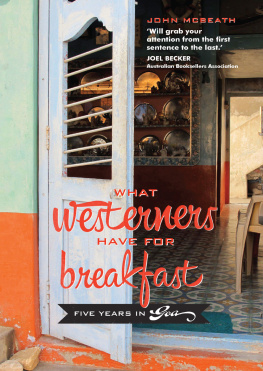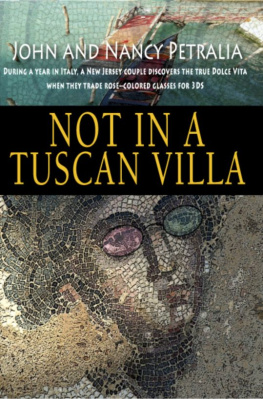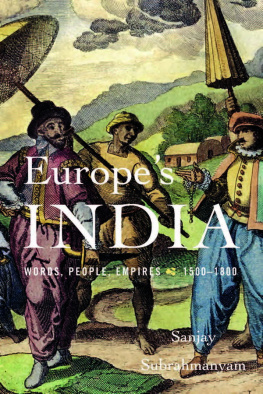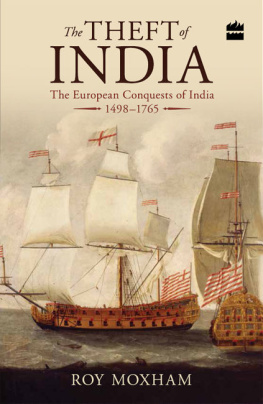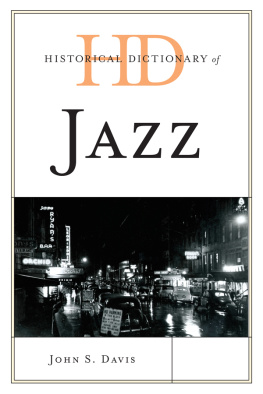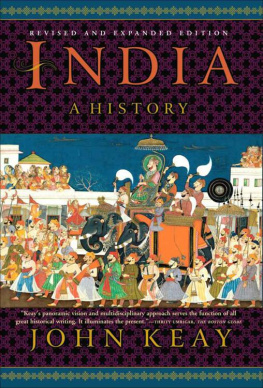




MELBOURNE, AUSTRALIA
www.transitlounge.com.au
Copyright John McBeath 2013
First Published 2013
Transit Lounge Publishing
This book is copyright. Apart from any fair dealing for the purpose of private study, research, criticism or review, as permitted under the Copyright Act, no part may be reproduced by any process without written permission. Inquiries should be made to the publisher.
Front cover image: Tess Rice
Cover and book design: Peter Lo
Printed in China by Everbest
A cataloguing-in-publication entry is available from the
National Library of Australia: http://catalogue.nla.gov.au
978-1-921924-57-6 (e-book)
This book is dedicated to my wife, Mary, without whose love, patience, understanding, encouraging input, analysis, tolerance and fine editing skills this book might well have taken another twenty two years.

Sue and I never planned to attract unceasing attention in Bombay far from it but when we entered the busy reception area of the five-star hotel with our black and white Springer Spaniel, everyone stopped and stared.
Wherever we go with our dog Holly we soon discover that we cannot go unnoticed. People come up to us in the street: Excuse me sir, what kind of dog is that?
Which country you are coming from?
What is her name?
Spaniel is native dog of Australia?
Is she for sale? I will buy her. What beautiful ears!
Wed arrived from the airport in the early hours having decided to spend the first couple of nights in luxury for our dream-chasing move to India and booked into the venerable Bombay Taj Hotel. I hadnt mentioned to management that we were bringing a dog, and Holly had started to revive a little from her sedated journey. She received a great welcome from the five night staff members at the long mahogany reception desk. They crowded around, fascinated by her floppy spaniel ears, Indian dogs being of the hound variety with pointed ears.
Once told that she was house trained, the night manager had no problem with Holly sharing our room: Provided there is no complaint from other guests, he said to us, beaming appreciatively at his canine guest.
I cant imagine that happening in Melbourne.
We take the lift to the thirteenth floor, Hollys first elevator ride and, when we reach our room Sue gets a bowl of water for the dog, and joins me on the balcony. The sky over Bombay is streaked with the tropical dawn, and in the streets far below we can see a few dim shapes moving as residents begin their day. The faint sound of a tinkling bell drifts up to us, and nearby a rooster begins to crow. We draw the curtains, turn on the air conditioner and fall exhausted into bed.
It was the loss of my job that finally motivated us to sell up and move to India. The sub-continent had fascinated both Sue and me during our many visits over the previous decade, when wed formulated a plan to eventually move there: When the time is right. Id been working for five years in a highly paid managerial position in the computer industry, when a top level re-shuffle resulted in my dismissal.
In the days after my sacking, still in a state of shock, we started discussing the difficult question of where to from here. After Id vaguely mentioned a few unappealing and maybe unobtainable possibilities elsewhere in the computer industry Sue reminded me: Look, weve so often talked about our Indian scheme, moving to Goa to start a business when the time was right, I nodded. She continued, in a confident tone: Well maybe that time is now.
It was true wed planned and discussed this idea over years, and now with my job loss and disillusionment with corporate life, there was really nothing on the employment horizon to keep me in Melbourne.
Sue, a career teacher, was also ready for change.
Ive always liked the idea of being a middle-aged dropout, she laughed. And if that can be arranged now by selling up and moving to India, I cant think of a better idea. Then she added something I hadnt anticipated: Of course well have to take Holly too.
I started to protest about the cost, saying also that if things didnt work out, because of quarantine regulations, shed be unable to return to Australia. Sue was adamant Holly must come too.
Its mid afternoon on our first day at the Taj before we surface, and the air conditioner still hums reassuringly. I get up and throw open the balcony doors to blinding brightness and a rush of furnace-like air. Out on the balcony the metal rail is too hot to touch but the view from the thirteenth floor is full of drama. To the right, beyond the sombre Gateway of India monument, is a view over the busy harbour.
Centre front is the Royal Bombay Yacht Club, a Victorian sandstone bastion of the British Raj, where I can see tables laid for afternoon tea in a lawn garden; and to the left the Colaba and Fort areas of Bombay, a jumble of streets, lanes and buildings pulsing with people.
Directly below is a street alive with activity, generating a cacophony of sounds: clattering, hammering, clamouring, sweeping, ringing, thumping, and other unidentifiable noises waft up on the heated air like a soundtrack from a distant movie.
A troupe of performers below is going through a gymnastic act, and spotting us far up on our balcony, several of them make gestures for us to throw money. They seem too distant from the thirteenth floor, but Sue produces a matchbox, I put a few coins into it for weight, add a US dollar note, seal it and toss it as far out as I can. The tiny box floats off target, but a young boy from the group, locking his gaze on the object, runs in pursuit and seizes it when it lands on the road, waving an excited thank you as he extracts the money.

Our scheme offers both a challenge and the chance to live in an exotic place to which we are very attracted, and while it means moving a great distance to a completely different life and culture, we feel capable of making it a success.
Our much-discussed project is to rent or purchase one of the many large old Portuguese-style houses in the ex-colonial enclave of Goa.
The old Portuguese colony, now a state of India, with its spectacular scenery, beautiful beaches, and relaxed attitude towards Westerners and alcohol, is undergoing a tourist boom.
On one of our holiday trips wed explored the availability of suitable premises, and Id written to the Indian embassy in Australia who sent me an encouraging letter stating that: There is no law prohibiting foreign ownership of immovable properties in India.
Once we find a suitable place we plan to convert it into small-scale accommodation, along the lines of a European pensione, adding some modern facilities, but retaining the original character. Such houses in Goa are not expensive by Australian standards, and in the range of accommodation currently available there is nothing like the place we plan. Our idea is to provide an income and lifestyle for both of us, while offering a place to stay within the atmosphere of a 200-year-old environment. We are certain that the sort of accommodation we envisage would attract guests from the growing numbers of European tourists.
Next page
